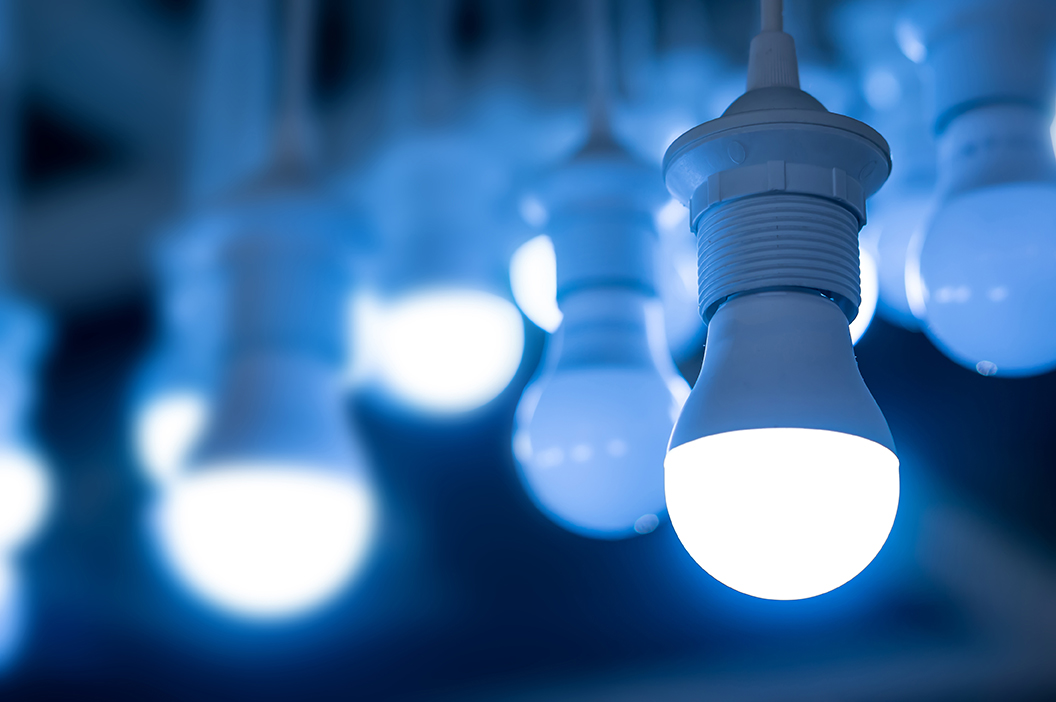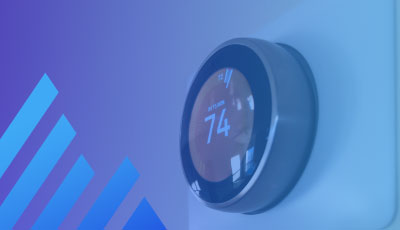Over the last few decades, we’ve seen more and more Utah homeowners turning to energy-efficient solutions in their homes. Your home uses energy in nearly everything it does, and we understand the cost of such usage is a concern for many. But with new technologies emerging every day, becoming more environmentally friendly and budget-conscious is getting easier and easier. According to our experts, here are some of the most effective ways you can improve your home’s energy efficiency.
LED Lighting
Making small changes to your home’s lighting is one of the quickest and most inexpensive ways to lower your overall energy consumption. If your home has outdated halogen, incandescent, or compact fluorescent light bulbs, consider switching them out for light-emitting diode (LED) bulbs. LED lights offer increased energy efficiency and less expensive electric bills. Best of all, LEDs have an extremely long lifespan relative to every other lighting technology (including fluorescent lights).
Compared to traditional compact fluorescent lightbulbs, LEDs are also 80% more efficient. And when compared to incandescent models, they are 90% more efficient. We think that’s pretty impressive. And while LED light bulbs have a higher upfront cost, the savings accumulated over their long lifespan cancels out the price. For this reason, our Expert Services- Plumbing, Heating, Air & Electrical team highly recommends LED lighting as an efficient, reliable way to save energy and lower your utility bill at the same time.
Tankless Water Heaters
Heating your home is the second-largest expense when it comes to your utilities, accounting for nearly 18% of your total bill. Now, most homeowners have either gas or electric water heaters. Whether you prefer to run your water heater with gas or electricity, you have the choice between using either tankless or traditional water heating methods. However, of the two, tankless water heaters are the more energy-efficient option.
Traditional water heaters have a tank of water that stays at a heated temperature until it needs to be used. This causes consistent energy expenditure, even when it isn’t necessary. Tankless water heaters, on the other hand, don’t store water. When hot water is in demand, the water is heated instantaneously. Additionally, tankless water heaters are less likely to need a replacement in the long run, as their life span is over 20 years. Meanwhile, traditional water heaters commonly last 10-15 years.
HVAC Replacement & Maintenance
Ensuring you have the most energy-efficient HVAC system is the primary way to decrease your overall energy usage. Because nearly half of your home’s energy usage occurs through heating and cooling, it is worth it to some to swap their traditional HVAC system for newer, more energy-efficient options.
In just 10 years, the SEER rating on HVAC systems continues to rise–meaning you could be saving more on heating and cooling costs with a new-and-improved model. These savings may not be worth the replacement costs, but it is an option worth mentioning nonetheless. According to Energy.gov, “Even if your air conditioner is only 10 years old, you may save 20-40 percent of your cooling energy costs by replacing it with a newer, more efficient model.”
No matter what your budget is, there are other ways to improve the efficiency of your HVAC unit. Having a bi-annual equipment inspection and cleaning keeps your HVAC system running at peak efficiency year-round. It also helps you to identify and avoid potentially major problems before they become major expenses.
In addition, your HVAC system’s air filter can greatly decrease overall efficiency if it’s getting clogged. On average, you should be checking your air filter every month. This is especially important during heavy usage months like the winter and summer. If your filter looks dirty, consider changing it even if you haven’t hit the one-month mark. This can help save you energy and money. At the longest, you should not let your filter go unreplaced for a maximum of three months. We speak on the importance of home maintenance in a recent blog and cover the ways you can be caring for your HVAC.
Smart Thermostat Technology
Smart thermostats offer many advantages in energy efficiency and savings. For starters, smart thermostats can be controlled from an app on your phone, making them easy to access. This accessibility allows you to remotely change your home’s energy usage in instances where you know you’ll be home late or the temperature only needs a slight adjustment.
Smart thermostats are also equipped with the capability to set up programs for heating and cooling based on specific times of day and internal temperature. Some are able to set those programs automatically, according to your habits and schedule. Advanced models can also sense which areas you’re not using and decrease power to that section of the home. All of these little modifications add up to big savings for your household.
Home Ductwork Care
Your heat pump, central air conditioner, and hot air furnace all most likely have ducts through which the air passes. A lot of the air that you’re paying to heat and cool might be escaping from your ducts before entering your living space. If you’ve got a lot of leakages, sealing the leaks can make a huge difference in your energy bills.
If these ducts aren’t in excellent condition, they could be the source of your wasted energy. Energy Star reports that “Leaky ducts can reduce heating and cooling system efficiency by as much as 20 percent. Sealing and insulating ducts increases efficiency, lowers your energy bills, and can often pay for itself in energy savings.” If you are unsure how to seal a duct on your own, consider calling a professional HVAC expert to ensure the job is done correctly.
System Equipment Checks
To ensure that your equipment is running seamlessly, consider setting up consistent appointments with your local HVAC specialist at Expert Services- Plumbing, Heating, Air & Electrical. Equipment tune-ups and quality control checks are important to ensure that your equipment is functional. Broken or improperly functioning equipment can cost you money, headaches, and energy.
The industry minimum says that you should get your systems checked once a year. However, if you want to be diligent in your maintenance, consider getting your systems checked every 6 months, generally prior to heavy usage months like the summer and winter.
Look into ENERGY STAR
If your HVAC systems are close to their expiration, consider swapping them out for ENERGY STAR certified units. ENERGY STAR certifications are given to equipment that has been designed with energy efficiency in mind.
By replacing your old systems with these newer ones, you can cut your energy bills significantly. Your local HVAC specialists will be able to guide you in advising which units are best for energy efficiency, and we’ll install them properly to ensure maximum performance!
Call The Experts
Expert Services- Plumbing, Heating, Air & Electrical is proud to be one of the top plumbing, electrical, and HVAC specialists in Utah. If you’re looking to upgrade your systems, get maintenance done, or address a potential problem, our team of trained technicians is here to help. For more information, give us a call today!

